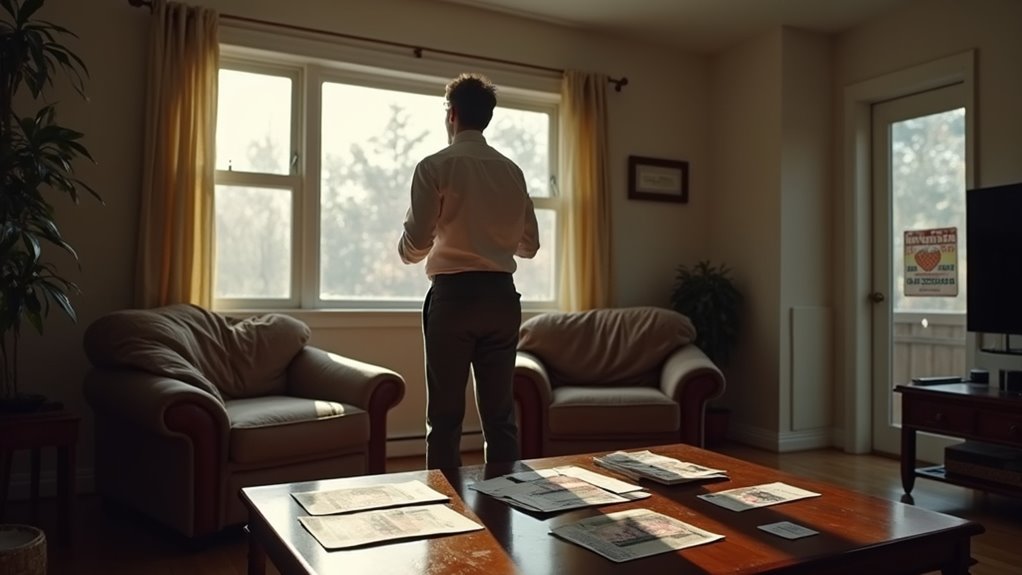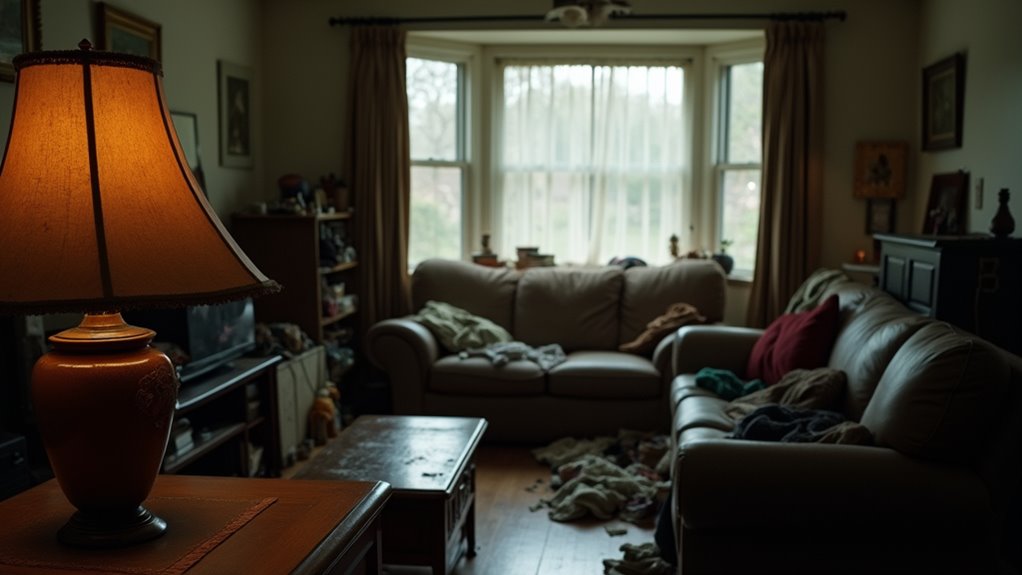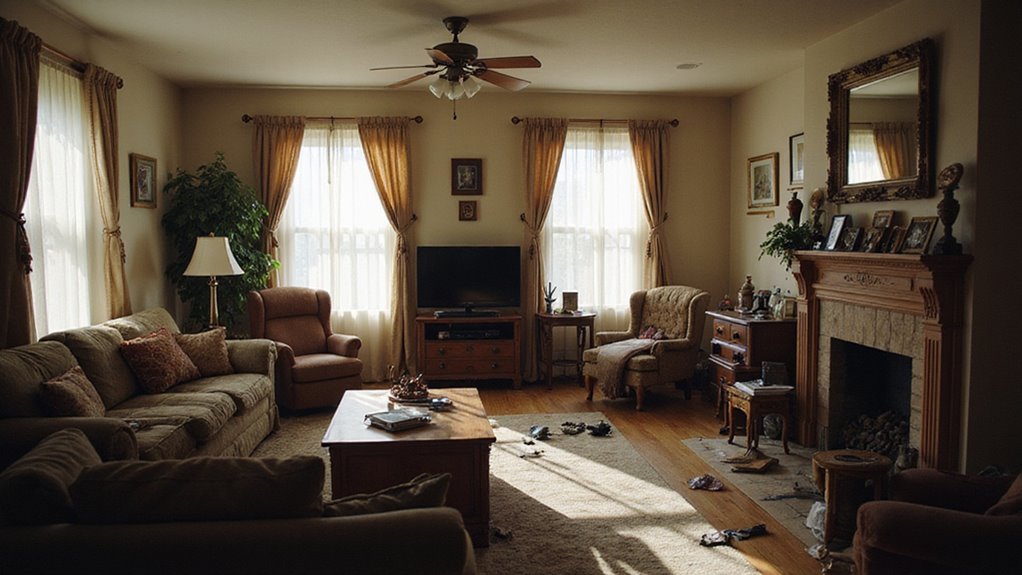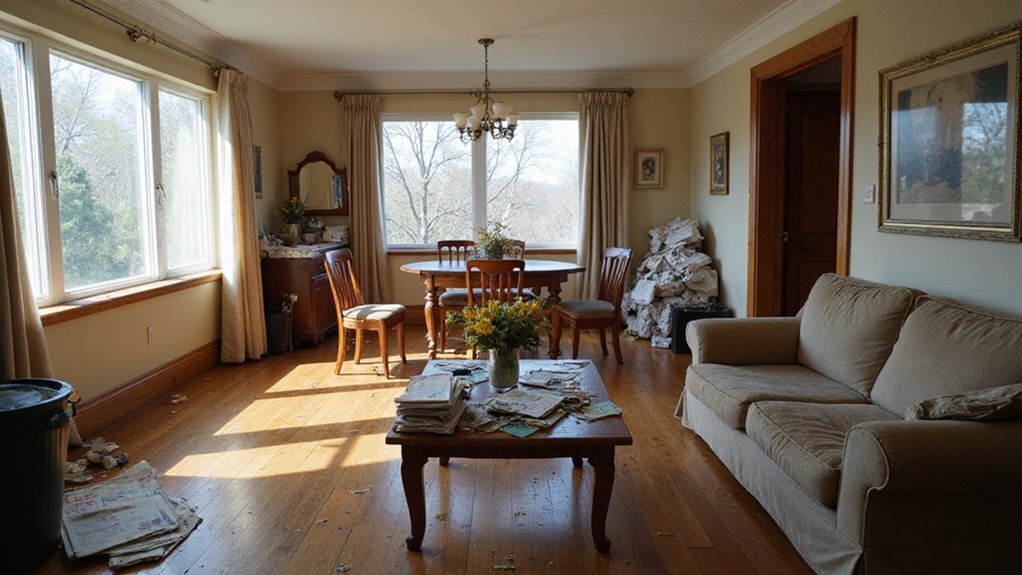Many homeowners are surprised when their listings do not sell within the contract period. Expired listings are a common problem in real estate. Simple mistakes can easily cause your property to sit on the market unnoticed.
This issue can be stressful. You might lose valuable time and money as buyers pass over your home. Frustration grows when you do not know what went wrong.
The most common mistakes that lead to expired listings are overpricing, poor marketing, and not listening to buyer feedback. By avoiding these errors, you can improve your chances of selling quickly.
Taking the right steps early makes a big difference. This blog will guide you through the top mistakes and help you keep your listing from expiring.
Key Takeaways
- Overpricing the property discourages buyers and leads to longer time on market, increasing the chance of the listing expiring.
- Poor online marketing, including low-quality photos and weak listing descriptions, limits visibility and buyer interest.
- Neglecting curb appeal and minor repairs creates negative first impressions and signals potential maintenance issues.
- Inflexible showing schedules or limited availability reduce buyer access and opportunities for offers.
- Failing to update pricing or strategy in response to market changes causes the home to stay unsold and the listing to expire.
Overpricing the Property

Overpricing the property makes it less likely to sell. High prices often lead to expired listings that do not attract buyers. If you want to avoid this, price your home fairly from the start.
Buyers can quickly compare prices online. If a house is too expensive, most buyers skip over it. Overpriced homes may only get low offers or none at all. Pricing your home above what similar neighborhood comps indicate can dramatically reduce buyer interest and showings.
Homes listed even 10% above market value see much fewer showings. Accurate pricing helps your property stay attractive to buyers. You should review recent sales and ask a local real estate agent for advice.
If your property has underlying issues like termite infestations, overpricing will make it even more difficult to attract serious buyers.
Neglecting Curb Appeal
Don’t underestimate how overgrown lawns and weeds instantly turn buyers away—studies show curb appeal can boost a home’s value by up to 7%. If buyers see peeling paint or visible decay, they’ll assume bigger problems lurk inside. Prioritize exterior maintenance to attract more showings and prevent your listing from going stale. Simple steps like fresh paint on shutters or cleaning up debris can add charm and ensure your property makes a strong first impression. For sellers looking to avoid the hassle of repairs, selling homes as-is can be a practical solution that appeals to cash buyers and speeds up the process.
Overgrown Lawns and Weeds
Overgrown lawns and weeds make a property look uncared for. This can turn away buyers before they see the inside. A messy yard lowers your home’s value.
Studies show clean yards help homes sell for up to 7% more. Well-kept lawns and gardens attract more interest. If you want to sell quickly, keep your yard tidy.
Regular mowing and weed removal are important. Fresh mulch and seasonal flowers can make your entrance look inviting. If buyers see a cared-for yard, they trust the rest of the property is maintained.
Simple yard upkeep shows pride of ownership. If you ignore the yard, your listing may not sell. Always prioritize curb appeal when selling your home.
Peeling Paint and Decay
Peeling paint and decay lower your home’s value and scare buyers away. If buyers see these problems, they may think the house is not cared for. Many buyers will not consider a home with visible damage.
You should fix peeling paint right away. Scrape off the old paint and apply a fresh coat. New paint makes your home look well-maintained.
Rotting wood needs to be repaired or replaced. Focus on areas around doors, windows, and porches for best results. If you neglect this, buyers may worry about bigger problems.
Rusted fixtures should be removed. Install new, weather-resistant hardware for a clean look. If you address these issues, your home will attract more serious buyers.
Poor Quality Listing Photos

Poor quality listing photos are a main reason homes do not attract buyers. Buyers judge properties using online photos before visiting. Clear, appealing pictures help listings stand out.
Bad lighting, clutter, or crooked angles make a property look less attractive. Good photos use natural light and show rooms at eye level. Each picture should highlight the best feature of the room. If listing photos are poor, it can result in less interest because buyers often assume issues with marital property status if the home appears neglected.
Simple editing can improve brightness and color. Professional photography often gets more online views and in-person showings. If you want to avoid an expired listing, always use high-quality photos.
Sellers considering a cash home sale should remember that professional photos and virtual tours are a strategic timing strategy to increase buyer interest and reduce the risk of an expired listing.
Inadequate Online Marketing
If your listing has poor photos, a weak social media presence, or limited visibility on major websites, you’re missing the attention of today’s digital buyers. Homes marketed with professional photos and robust online exposure sell 32% faster on average. To prevent your listing from expiring, upgrade your visuals, strengthen your social channels, and expand your reach across top real estate platforms.
Leveraging swift debt reduction strategies through effective marketing can also help you close sales faster and avoid costly delays. Utilizing diverse marketing methods ensures your property reaches the widest possible audience and significantly reduces the risk of your listing expiring.
Poor Listing Photos
Good photos are important for selling a home online. If your listing has bad photos, buyers may skip it. Poor photos can cause your home to get less attention and stay unsold.
Professional photos help homes sell faster and for more money. Studies say listings with good photos sell 32% quicker. If you want better results, focus on clear and attractive images.
Use natural light when taking photos if possible. Proper staging can make rooms look bigger and more inviting. A professional photographer can help show your home in the best way.
Avoid dark, cluttered, or awkward shots. If you improve your listing photos, you may attract more buyers. Simple changes can make a big difference in how your property looks online.
Weak Social Media Presence
A weak social media presence limits your home listing’s exposure. Most buyers search for homes online, so your listing needs visibility. If you do not use social media well, fewer people will see your property.
You should use Facebook, Instagram, and TikTok to share your listing. Make posts visually appealing and update them regularly. If you use interactive content, you can attract more attention.
Analytics tools help you see what works best. Adjust your posts based on this information. If you respond quickly to comments and messages, you build trust with buyers.
A strong social media strategy increases your home’s visibility. This reduces the chances of your listing being ignored. If you improve your social media presence, you can attract more potential buyers.
Insufficient Website Exposure
Insufficient website exposure means fewer buyers see your property online. Most buyers use the internet to find homes. If your property is not visible, you lose potential interest.
High-quality photos and clear descriptions improve your listing. Relevant keywords help your property appear in online searches. Better SEO can prevent your listing from being ignored.
Digital marketing can reach buyers who search online. Targeted ads and retargeting show your property to interested people. If you use these methods, your listing can get more views.
Listing on many websites increases your property’s exposure. Major real estate portals and local MLS sites attract different buyers. If you use multiple platforms, more people will see your home.
Limited Showing Availability
Limited showing availability can stop buyers from viewing your home. Buyers often skip listings if they cannot find a suitable time. If your home is hard to see, it may not sell. Flexible showing times attract more buyers. Evening and weekend showings help those with busy schedules.
A virtual tour lets buyers view your home any time. If you host an open house, more people can visit at once. Buyers appreciate convenience when touring homes. Curb appeal improvements can also encourage more buyers to attend showings and make a positive first impression. If you limit access, you might lose serious offers.
Sellers who accommodate buyer needs by being flexible with showing times can increase their chances of attracting cash buyers and speeding up the sale.
Ignoring Feedback From Showings

Ignoring feedback from showings can make it harder to sell your home. Buyers’ comments highlight what needs fixing or improving. If you do not listen, you risk losing potential buyers.
Feedback can show common problems like bad smells or clutter. You should fix these issues if several visitors mention them. Buyers notice details, so small changes matter. Sometimes, feedback can alert you to bigger concerns—such as long-term effects from damage—that may seriously affect your home’s value and should be addressed promptly.
Suggestions about furniture or decoration can help your home look better. If buyers mention lighting or traffic flow, consider changing your open house setup. Responding to feedback can make your home more appealing.
If you pay attention to comments, you might attract your next buyer. Use each showing as a chance to improve. Acting on feedback increases your chances of selling. Addressing issues quickly can also help ensure you maintain a clear title throughout the selling process.
Outdated Interior or Features
Buyers notice outdated interiors and unappealing décor right away, with 68% citing dated features as a major turnoff, according to industry surveys. If you haven’t invested in modern upgrades or refreshed your home’s style, you’re likely losing qualified buyers before they make an offer.
Focus on updating key areas like kitchens, bathrooms, and lighting to increase appeal and shorten your time on the market. Properties that show signs of being outdated may especially struggle to attract all-cash buyers, who value speed and simplicity in real estate transactions. Sellers who want a fast, hassle-free solution should consider addressing outdated features, as these can significantly impact both interest and offer price.
Unappealing Home Décor Choices
Unappealing home décor can make it harder to sell your house. Buyers often lose interest if they see outdated or bold styles. Modern and neutral décor increases your chances of a quick sale.
Neutral colors help rooms look bigger and cleaner. Personalized accents or bright wallpapers may turn off potential buyers. If you want a wider appeal, stick to simple designs.
Declutter each room so buyers can imagine their own belongings there. Removing family photos and extra furniture creates a welcoming space. Clean surfaces and open layouts help buyers focus on the home itself.
Highlight the best features of every room. Good lighting and smart furniture placement make spaces feel larger. If you want to attract buyers, show off natural light and open areas.
Updating your décor can reduce the time your home stays on the market. Simple changes often have a big impact. Focus on these steps for better results.
Lack of Modern Upgrades
Homes without modern upgrades are harder to sell. Most buyers want smart technology and energy-efficient features. Outdated homes often get less attention in the market.
Buyers are willing to pay more for homes with smart features. Many also look for energy-saving appliances and systems. Old kitchens, lighting, or HVAC systems can lower your home’s value.
Sellers should consider upgrades like programmable thermostats and LED lighting. Simple changes can make a big difference. If you want to attract buyers, prioritize these improvements.
Failing to Stage the Home

Failing to stage your home can make it harder to sell. Staged homes attract more buyers and sell much faster. Buyers often skip homes that look cluttered or uninviting.
If you do not stage your home, buyers may not picture themselves living there. This can lead to fewer offers and a longer sale process. Home staging helps buyers connect emotionally with your property.
You can improve your home’s appeal by decluttering and removing personal items. Clean spaces help buyers focus on the home itself. If you highlight key features and arrange furniture well, rooms will look their best.
Proper lighting also makes a big difference. Both natural and artificial light can make spaces look brighter and more welcoming. If you stage your home, you increase your chances of a quick sale.
Taking the time to research the local market can also help you understand what buyers in your area are looking for, allowing you to stage your home more effectively.
Weak Property Descriptions
If your property description lacks convincing details or relies on generic phrases, you’re missing a powerful opportunity to attract buyers. Data shows that listings with specific, feature-driven language get more views and inquiries. Highlight unique amenities and essential features to make your home stand out in a crowded market.
Lack of Compelling Details
A property description without enough detail can make your listing less attractive. Buyers will quickly move on if they do not see value. You must highlight what makes the property special right away.
You should mention unique features such as high-end appliances or smart home systems. Creative descriptions help buyers imagine their daily life in the home. If buyers picture themselves there, they may be more interested.
Always include specific facts like square footage and recent upgrades. Numbers and details make your listing more believable. If your listing is clear and detailed, it is less likely to expire.
Overused Generic Language
The words you use in your listing matter. Generic phrases like “must-see” or “won’t last long” do not attract buyers. If you use the same words as other listings, buyers may ignore your property.
Listings with clear and specific descriptions get more attention online. National Association of Realtors data shows these listings get up to 58% more views. If you want buyers to notice your property, you need to highlight what makes it unique.
Describe recent upgrades or special features in detail. You could mention “energy-efficient windows installed in 2022” or “custom maple cabinetry.” If you use precise details instead of vague words, your property will stand out.
Missing Key Features
Many listings lose buyers if they do not mention key features. Properties with missing details can easily be overlooked. Listings that include essential amenities get up to 60% more buyer interest.
You should list important features like modern kitchens, extra storage, or smart devices. Specific details about upgrades or new renovations can add value. Buyers notice homes that highlight what makes them special.
If your property has popular features in your area, make sure to mention them. Focus on the amenities that buyers want most. This approach can help attract more serious buyers.
Choosing the Wrong Agent
Choosing the wrong real estate agent can hurt your chances of selling your home. A poor agent may price your home badly or miss important legal steps. These mistakes often lead to homes not selling. A poor real estate agent can cost you a sale by mispricing your home or missing key legal steps.
Not all agents offer the same skills and experience. If you do not check their track record, you may end up with slow sales and low offers. Always review an agent’s marketing plan and negotiation skills before hiring.
The table below shows key differences between agents. Top agents use up-to-date pricing, follow legal steps, and market homes on many platforms. They also sell homes faster and communicate clearly.
If you want the best results, choose your agent carefully. This decision can prevent costly errors and help you reach your goals.
Not Adjusting to Market Changes

Real estate markets can change fast. If you do not adjust your price or plan, your listing might expire. Ignoring current trends often causes buyers to choose other homes.
You should check local market data every week. This means tracking new listings, price drops, and recent sales. If you notice changes, consider updating your pricing strategy.
Always compare your home to similar properties for sale. If competing homes lower prices, you may need to respond. Your agent can give useful feedback about the market.
If you stay flexible, you can attract more buyers. Quick adjustments help prevent your listing from expiring.
Overlooking Minor Repairs
Minor repairs can turn away potential buyers easily. Small problems like scuffed walls or dripping faucets make a bad first impression. Buyers often worry that small flaws mean bigger problems in the home.
Research shows that 68% of buyers avoid homes with cosmetic issues. Even squeaky doors or chipped tiles can lower a home’s value in their eyes. Buyers may not look past these flaws, so they move on to other homes.
If you fix these issues before listing, your home will look well-maintained. A thorough walkthrough helps you spot and fix both small and big problems. Addressing repairs early can help your home sell faster and with fewer objections.
Ineffective Communication
Ineffective communication can make it harder to sell your home. Poor communication may cause you to lose good buyers and delay your sale. Clear and timely updates help keep buyers interested.
Sellers should use technology like virtual tours if buyers cannot visit in person. Virtual tours help buyers learn more about your home from anywhere.
Regularly review your marketing plan with your agent. Everyone should agree on open house times and follow-up steps.
Always answer questions from buyers as soon as possible. Fast replies can keep buyers interested in your property. If you respond slowly, buyers might look at other homes.
Restrictive Terms or Conditions
Restrictive terms or conditions can make it harder to sell your home. Buyers may avoid listings with too many rules. If your terms are too strict, your home may stay on the market longer.
Examples include limited showing times, high earnest money, or refusing repairs. These may signal you are difficult to work with. Listings with fewer restrictions often get more offers.
Review any zoning or legal limits carefully. Avoid adding extra rules that are unnecessary. If you allow some flexibility, buyers are more likely to stay interested.
If buyers think your listing is complicated, they may look elsewhere. Setting fair and reasonable terms can help you sell your home faster. Always consider what buyers expect in the current market.
Conclusion
If sellers avoid common mistakes, they can greatly reduce the risk of an expired listing. Proper pricing and strong presentation are key to attracting buyers. If you make these improvements, you give your home the best chance to sell.
If you need a faster solution, we buy houses for cash. Sellers who want to skip the hassle can contact us for a simple and quick sale. If you sell to us, you avoid the stress of showings and uncertainty.
If you want to avoid an expired listing, we can help. We at Limitless Homes of KC are ready to make a fair cash offer. Contact us today to see how we can help you sell your home quickly and easily.

